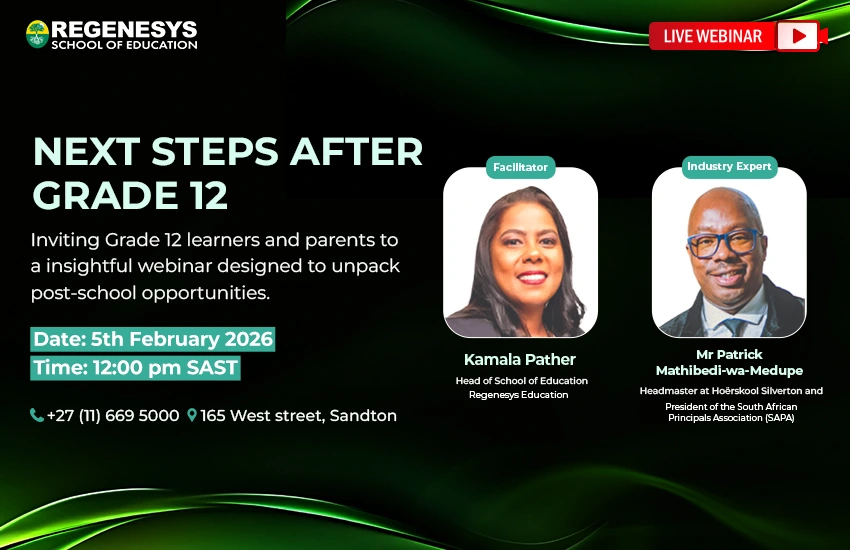Balancing studies, work, and personal responsibilities can be stressful for many students enrolled in a postgraduate diploma in public management realistic planning journey. For those joining the October intake, the pressure often feels even greater as they try to adapt to academic demands while preparing for year-end commitments. Many students wonder how to manage PDPM pacing without falling behind or burning out. The truth is, a clear and realistic plan can make the difference between feeling constantly overwhelmed and staying on track.
Table of Contents
- The Role of Realistic Planning in PDPM Success
- Recognising the Early Signs of Burnout in PDPM Studies
- How to Build Buffer Weeks Into Your PDPM Study Plan?
- Choosing the Right Priorities for Effective PDPM Progress
- Breaking Down Study Stress with Small Daily Goals
- Recovering Quickly from Missed Deadlines in PDPM
- The Role of Facilitators: Why Open Communication Helps
- Creating Personal Day Rules for Study-Life Balance
- Simple Motivation Hacks to Stay Consistent
- The Value of Peer Support and Community Check-ins
- How to Reset Without Guilt When Plans Go Off-Track?
- Conclusion
- Postgraduate Diploma In Public Management Realistic Planning – FAQ
In this article, we will explore effective strategies for avoiding overwhelm and building confidence through a postgraduate diploma in public management realistic planning.
The Role of Realistic Planning in PDPM Success
Success in the Postgraduate Diploma in Public Management (PDPM) is not only about completing assignments on time. It is also about creating a structure that aligns with your workload, personal life, and learning style. The postgraduate diploma in public management realistic planning approach ensures you do not overcommit, fall behind, or lose motivation halfway through the semester. Without realistic planning, many October students end up cramming or relying on unhealthy study patterns that increase pressure.
Given below are three key benefits of postgraduate diploma in public management realistic planning for students:
- Consistency: Pacing yourself throughout modules prevents last-minute panic. It ensures steady progress rather than bursts of rushed effort.
- Flexibility: Adding breathing space in your schedule helps manage unexpected family or work obligations without derailing your studies.
- Sustainability: Building a balanced routine creates habits that support long-term success, both academically and personally.

Recognising the Early Signs of Burnout in PDPM Studies
Burnout often creeps in slowly, and many students do not notice the signs until their performance starts slipping. For October students, this risk is higher due to overlapping academic and personal responsibilities. Recognising burnout early helps you adjust your postgraduate diploma in public management realistic planning before stress escalates. When ignored, these warning signals can affect focus, health, and motivation.
The following are common symptoms you should watch out for:
- Constant fatigue: If you feel tired even after resting, your study schedule may be too demanding. This type of exhaustion lowers concentration and reduces productivity.
- Loss of focus: Struggling to understand readings or pay attention in lectures is a clear sign that you may be mentally drained. Continuous difficulty in concentrating can delay your progress significantly.
- Procrastination: When you repeatedly put off tasks, even important ones, it often signals emotional or mental exhaustion. Over time, this builds up additional stress that makes catching up harder.
- Irritability or stress: Becoming unusually short-tempered with family or colleagues often reflects an overloaded routine. Stress that shows up in relationships is a red flag that balance is missing.
How to Build Buffer Weeks Into Your PDPM Study Plan?
Many October students make the mistake of filling every week with study tasks. This rigid schedule leaves no room for unexpected events such as illness, work obligations, or family emergencies. By contrast, adding buffer weeks is a smart element of postgraduate diploma in public management realistic planning. These weeks act as a safety net, giving you space to catch up without falling behind.
Here are some effective ways to build them into your study plan:
- Leave at least one free week per module: Use this week to catch up on assignments, revise, or prepare for exams. It keeps your workload flexible and manageable.
- Block catch-up weekends: Every four to six weeks, reserve a weekend only for reviewing lecture notes or completing delayed work. This prevents last-minute pressure before assessments.
- Treat buffer weeks as part of planning: View them as essential components of your schedule, not extra time. This mindset shift reduces guilt when you need to use them.
Know How to Balance Work & Study? Top Postgraduate Diploma in Public Management Time Tips
Choosing the Right Priorities for Effective PDPM Progress
It is easy to feel that every task is equally urgent, especially when deadlines stack up. But trying to do everything at once leads to confusion and stress. Postgraduate diploma in public management realistic planning requires identifying priorities and focusing on tasks that matter most. Prioritisation helps students avoid wasting energy on less critical work.
The following are some simple methods for setting priorities in PDPM modules:
- Urgent vs. important tasks: Work on tasks that directly affect your grades or upcoming deadlines first. Once urgent tasks are under control, shift focus to longer-term projects.
- Break down assignments: Divide projects into smaller tasks with mini-deadlines. This makes large assignments less intimidating and helps you keep momentum.
- Use priority lists: Write down the three most important academic goals for the week. Sticking to a short list makes planning more focused and achievable.
Read more on How to Build an Effective PDPM Study Routine for Professionals While Working Full-Time?
Breaking Down Study Stress with Small Daily Goals
Looking at the entire semester workload can feel overwhelming. Breaking it into small daily goals makes the work more manageable and less intimidating. This approach is one of the most powerful tools in postgraduate diploma in public management realistic planning. Small tasks add up to big results when consistently applied.
The following are examples of daily goals you can apply:
- Set short reading targets: Instead of completing an entire chapter, aim for 10–15 pages each day. This ensures steady progress and helps with long-term retention.
- Daily reflection notes: Spend 10 minutes writing down what you learnt in class or during readings. This reinforces understanding and makes revision easier later.
- Micro deadlines: Tackle one small part of an assignment, such as drafting an introduction or creating a research outline. These smaller achievements prevent last-minute rushes.
Recovering Quickly from Missed Deadlines in PDPM
Missed deadlines are part of student life, especially for those balancing multiple responsibilities. The important thing is not to panic but to recover with a clear strategy. In postgraduate diploma in public management realistic planning, setbacks are expected and manageable. Learning to reset quickly is a vital skill for October students.
Handling missed deadlines calmly prevents guilt and loss of motivation. Instead of focusing on failure, treat it as a chance to improve planning. Here are the steps to follow:
- Reassess your calendar: Look at your schedule to see where you can move or shorten tasks. Adjusting realistically keeps you from falling further behind.
- Prioritise the missed task: Make the delayed assignment your top priority before adding new tasks. This prevents small issues from piling into major setbacks.
- Communicate with facilitators: Let them know if you are struggling and need support. Facilitators can guide you with advice, feedback, or deadline flexibility.
The Role of Facilitators: Why Open Communication Helps
Many students hesitate to reach out to facilitators, fearing they might appear weak. In reality, communication is vital in postgraduate diploma in public management realistic planning. Facilitators are there to support your learning, guide your PDPM pacing, and help you manage expectations. Talking early prevents small issues from growing into bigger challenges.
Open communication shows responsibility and willingness to learn. It also builds trust between students and facilitators. The following are examples of when to reach out:
- Clarifying Assignment Requirements: If you are unsure about what is expected, ask for clarity well in advance. This prevents confusion, saves time, and helps you avoid unnecessary mistakes.
- Addressing Difficult Concepts Early: Don’t wait until exams to resolve challenges with complex topics. Raising questions sooner strengthens your understanding and reduces stress later.
- Sharing Setbacks or Challenges: If you are facing personal or professional difficulties, let your facilitator know. They may suggest practical adjustments or solutions to help you recover and stay on track.
Know Postgraduate Diploma in Public Management (PDPM): What to Expect from the Curriculum

Creating Personal Day Rules for Study-Life Balance
Rest is often seen as optional, but it is an essential part of productivity. Without proper rest, your focus, motivation, and performance will all decline. A balanced postgraduate diploma in public management realistic planning schedule always includes personal days. These breaks protect both mental and physical health.
Many October students underestimate how much rest contributes to academic success. Structured downtime improves long-term memory and creativity. The following are some effective personal day rules:
- One rest day per week: Dedicate one day to family, friends, or hobbies without any study tasks. This restores energy and keeps motivation fresh.
- Evening cut-off hours: Stop studying after a fixed time each evening, such as 8 PM. Creating a boundary helps you switch off mentally and sleep better.
- Mindful breaks: Take short walks, listen to music, or engage in light hobbies during study sessions. These small breaks prevent exhaustion and maintain focus.
Understand What to Expect from the Online PDPM Experience?
Simple Motivation Hacks to Stay Consistent
It is common for motivation to dip midway through the semester, especially when assignments increase. To stay consistent, students must actively work on motivation. A strong postgraduate diploma in public management realistic planning plan includes not just study tasks, but also ways to keep energy levels high. Without motivation, even well-structured plans can fall apart.
Motivation can come from both internal and external sources. By creating simple systems, students can build momentum and stay positive. Here are a few hacks that help:
- Reward yourself: Celebrate small wins with something you enjoy, such as a favourite meal or activity. These small rewards create positive reinforcement.
- Accountability partner: Pair up with a classmate and share your weekly goals. Having someone check in keeps you consistent and reduces isolation.
- Visual reminders: Create a vision board or study timeline and place it where you see it daily. These visual cues remind you of your long-term goals.
Read more on Study Motivation Tips for Online PDPM Learners: Learn the Best Strategies for Success
The Value of Peer Support and Community Check-ins
Studying alone, especially in online programmes, can feel isolating. Peer support and community check-ins are important in postgraduate diploma in public management realistic planning since it provide motivation, accountability, and encouragement. They are essential elements of the October student balance guide strategies. Learning becomes easier when students share challenges and celebrate progress together.
The following are practical ways to use peer support:
- Weekly study groups: Meet online or in-person to discuss progress and clarify doubts. These sessions reduce stress by showing you are not alone.
- Progress updates: Share weekly achievements with your peers. This creates accountability and motivates you to keep moving forward.
- Supportive discussions: Talk openly about challenges or stress. Emotional support from peers reduces the feeling of being overwhelmed.
How to Reset Without Guilt When Plans Go Off-Track?
Even with the best planning, unexpected disruptions can throw students off track. The key is to reset without feeling guilty. Guilt often delays progress and creates unnecessary pressure. Instead, a postgraduate diploma in public management realistic planning approach includes guilt-free resets.
Resets allow you to move forward rather than get stuck on what went wrong. They teach resilience and self-compassion, which are vital for long-term success. The following are steps for guilt-free resets:
- Acknowledge the delay: Accept that setbacks happen to everyone. This mindset reduces unnecessary self-blame.
- Adjust your schedule: Move tasks forward realistically instead of trying to finish everything at once. Gradual recovery is more sustainable than rushed catch-ups.
- Focus on the next step: Choose one immediate task to complete. Focusing on the present prevents overwhelm from bigger workloads.
Explore Postgraduate Diploma in Public Management (PDPM): Your Path to a Successful Career

Conclusion
Avoiding overwhelm in PDPM requires more than hard work – it requires realistic planning. By recognising burnout signs, creating buffer weeks, setting clear priorities, and staying motivated, October students can thrive. Success is not about perfection but about progress made steadily over time.
The postgraduate diploma in public management realistic planning gives you the structure to manage stress, stay consistent, and build habits for success. Students who approach their studies with balance and flexibility are more likely to complete their qualification with confidence.
Important Note: The October 2025 intake for the Postgraduate Diploma in Public Management at Regenesys School of Public Management is offered only online. Registration closes on 29 September 2025. Students are encouraged to apply early and begin building their realistic planning strategies as soon as possible.
Postgraduate Diploma In Public Management Realistic Planning – FAQ
What is the best way to start postgraduate diploma in public management realistic planning?
The best starting point is to create a semester calendar with all assignment deadlines. From there, add buffer weeks and break tasks into weekly goals.
How can PDPM pacing help avoid burnout?
PDPM pacing spreads assignments evenly across the semester instead of leaving them for the last minute. This burnout prevention for PG diploma reduces pressure and improves focus.
What should I do if I miss multiple deadlines?
Reassess your schedule and adjust priorities immediately. If needed, communicate with facilitators for guidance and support.
How do I manage family and work while following the October student balance guide?
Set clear boundaries and involve your family in your planning. Scheduling fixed study times that do not clash with work obligations helps maintain balance.
Why are rest days important in a PG diploma?
Rest days help your brain recover and improve long-term memory. They also prevent mental fatigue and keep motivation strong.
What tools can I use to manage study stress in SA?
You can use digital calendars, productivity apps, and physical planners to organise tasks. These tools reduce confusion and improve efficiency.







